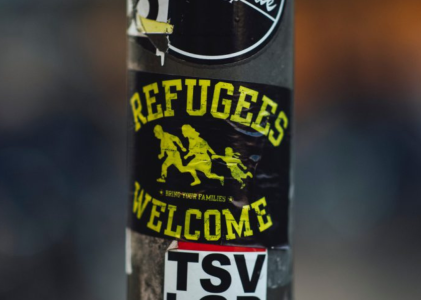Recently in Bangkok, I attended the presentation of a book and exhibition showing the work of Rohingya photographers. The creators could not be present at the event because they are refugees in Bangladesh and could not travel to Thailand. Omal Khair, Dil Kayas and Azimul Hasson, who became refugees after fleeing Myanmar in 2017, had to intervene via a pre-recorded video.
Refugees have the right to have travel documents, according to Article 28 of the 1951 Refugee Convention. The problem with Omal, Dil, Azimul and the more than 900,000 Rohingya in Bangladesh is that this country is not a signatory of the Refugee Convention or the 1967 Refugee Protocol. Neither has Thailand signed any of these treaties and Rohingya refugees and asylum seekers are often detained once they arrive in Thai territory.
The Bangladesh authorities accepted into their land more than 700,000 Rohingya people who fled the 2017 military operations in Myanmar. However, Bangladesh is not bound by the UN treaties to grant any right to the Rohingya refugees, including the freedom to travel within the country or abroad. Actually, they are not allowed to leave the refugee camps close to the Myanmar border and have limited access to education, healthcare and the internet, among other services.
The refugee crisis and Ukraine
Despite the tears shed by the Bangladeshi prime minister last month in New York when she was talking about the Rohingya´s hardship, her country could definitely do more for the refugees it harbors. It’s also true that the Rohingya refugees are a burden on Bangladesh, which can barely face its own political, social and climate challenges.
The European Union (EU) countries are rich and signatories of the UN Refugee Convention and Protocol. Surely, they do welcome refugees for legal and ethical imperatives. Or do they? In 2015, the EU went through the so-called “migrant crisis” because of the rejection fed by far-right groups against the refugees and migrants coming from Syria and other countries.
Was perhaps the rejection influenced by the economic crisis that Europeans were suffering? Well, after Russia attacked Ukraine last February, many European countries and their citizens welcomed Ukrainian refugees with open arms. This is happening when their economies and health systems are barely recovering from the catastrophic Covid-19 pandemic.
Afghan and Syrian refugees are received with suspicion or blunt rejection, but the situation is quite different with Ukrainians. Perhaps because, as the Ukrainian deputy chief prosecutor David Sakvarelidze said to the BBC, the people being killed in Ukraine have “blue eyes and blonde hair.”
Media representation has a lot to do with the way people see Ukrainian refugees versus refugees from the Middle East or Africa. As the South African comedian Trevor Noah said about the biased and even racist coverage by some Western journalists: “But I was shocked to see how many reporters -around the world, by the way- seem to think that it’s more of a tragedy when white people have to flee their countries.”
El humorista sudafricano Trevor Noah sobre el racismo y la superioridad moral de analistas y periodistas europeos al hablar de Ucrania y sus refugiados blancos. Bromas que son puñetazos. Con razón. pic.twitter.com/hn9SjeWq6J
— Xavier Aldekoa (@xavieraldekoa) March 4, 2022
Unequal support
The support given to Ukraine is celebrated by Myanmar activists and refugees, but they wonder why the help granted to Myanmar is so limited in comparison. The lack of balance could be affecting also the distribution of financial help by NGOs and UN agencies, which have limited funds and need to choose how much money they use for different crises and emergencies. A Rohingya refugee in Bangladesh complained that many Rohingya volunteers are losing their jobs due to the diversion of funds to Ukraine:
Numerous Rohingya volunteers are losing their jobs in light of that most International NGOs are restricting many projects in the Bangladesh refugees camp for expanding support in Ukraine. #Ukraine pic.twitter.com/7odVsnZNpw
— Naing Oo (@TechnicalShabb3) June 10, 2022
So, should countries open their borders to refugees? Would you support your government in welcoming hundreds or thousands of Rohingya refugees? According to the UN Refugee Convention and Protocol, countries should welcome and protect refugees fleeing from conflict or persecution. You may be for or against opening borders to refugees for legal or ethical reasons. Perhaps you think countries should accept just some refugees (maybe those closer culturally) or all of them; take them in after a short and transparent process or through a longer and more difficult system. What we should be aware of is that our opinions are also shaped by how the media represent (or misrepresent) and cover refugee issues, conflicts and humanitarian crises.
(Photo on the post´s entry and header by Kaique Rocha via pexels.com)

